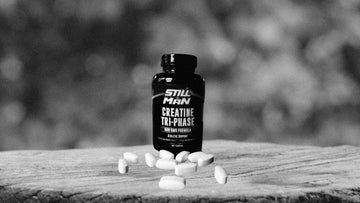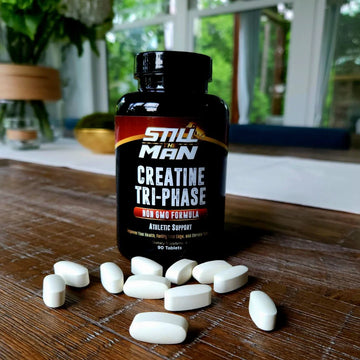Understanding the Need:
-
Nutrient Absorption: With age, the body's ability to absorb nutrients from food may diminish. Factors like reduced stomach acid production or medications can hinder absorption, making supplementation essential to maintain adequate nutrient levels so that there are no nutrition deficiencies.
-
Declining Metabolism: Metabolic rate tends to slow down as men age, affecting energy levels and nutrient utilization. Supplements can help bridge the gap between nutrient intake and metabolic demands.
-
Specific Health Concerns: Men over 40 might face specific health challenges, such as decreased bone density, heart health issues, declining cognitive function, and reduced immune response. Targeted supplements can address these concerns.
Key Supplements for Men Over 40:
-
Vitamin D: Essential for bone health, immune function, and mood regulation. As natural sunlight exposure might decrease with age, supplementation becomes vital.
-
Omega-3 Fatty Acids: Support heart health, cognitive function, and joint health. Many men may not consume enough omega-3s through diet alone.
-
Calcium and Magnesium: Vital for bone health. As bone density declines with age, adequate intake of these minerals becomes increasingly important.
-
B Vitamins, Especially B12: Essential for energy production and nerve function. B12 absorption may decrease with age, necessitating supplementation.
-
Probiotics: Gut health impacts overall well-being. Probiotic supplements can aid digestion and support immune function, which tends to weaken with age.
The Importance of Professional Guidance:
While supplements offer potential benefits, their indiscriminate use can pose risks. Consulting a healthcare professional before starting a supplement regimen is crucial. Factors like individual health conditions, medications, and existing nutrient levels need to be considered to determine the right supplements and dosages.
Complementary to Healthy Lifestyle Choices:
Supplements should complement—not replace—a balanced diet and a healthy lifestyle. Emphasizing a diet rich in fruits, vegetables, lean proteins, and whole grains remains paramount. Supplements are meant to fill nutrition deficiencies, not serve as substitutes for a nutritious diet.
Conclusion
For men over 40, incorporating supplements tailored to their specific needs can support overall health, vitality, and resilience against age-related challenges. While no supplement can reverse the aging process, they can play a pivotal role in optimizing health and well-being when used judiciously and under professional guidance. Taking proactive steps to address nutrition deficiencies can pave the way for a healthier, more vibrant life in the years to come.







